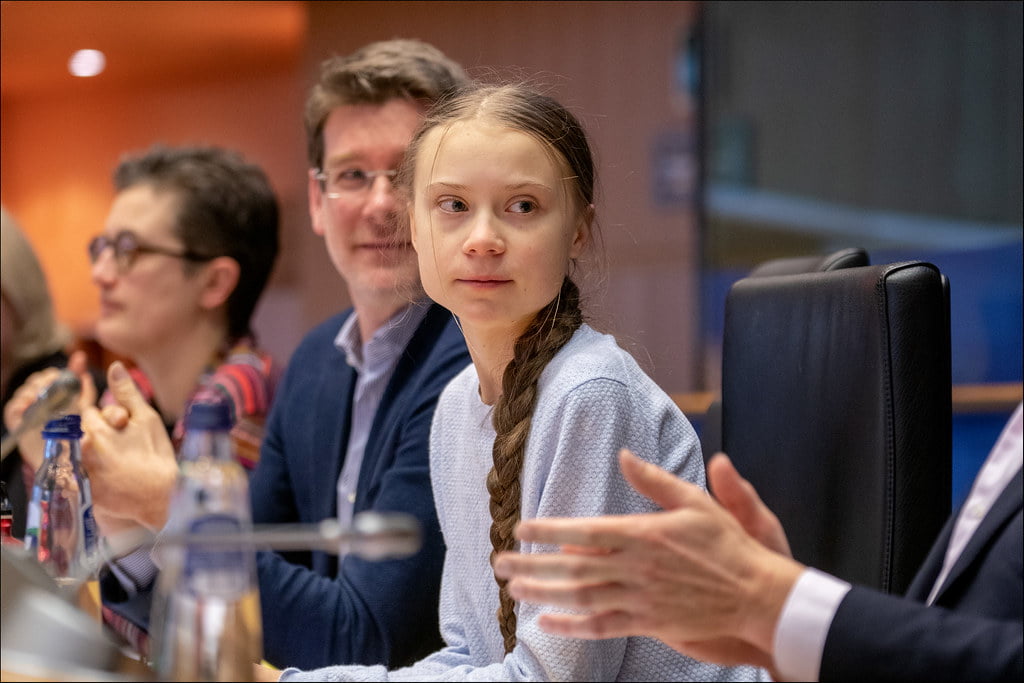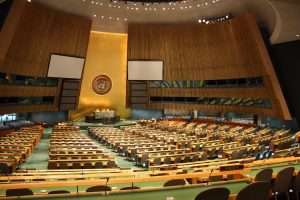Happy (convoluted) birthday, United Nations!
Today marks the 75th years since the United Nations came into existence in October 24, 1945. So much has happened since its launch and likewise so much is happening right now with clear consequences in the future. Looking at the UN’s history, it seems it has attended a cyclical, never-ending loop of political ups and downs, social progress and regression, increasing climate thread caused by unlimited human activity… And so on and so forth while new generations come and go:
The Universal Declaration of Human Rights (December 1948), the signing of the Treaty of Rome that would later lead to the creation of the European Union (March 1957), the rise of gender equality movements in the 1960s, the arrival of the man to the moon (July 1969), the rise of global awareness in the 1970s, the independence of many African states in the 1970s, AIDS/HIV epidemic in the 1980s, the finalized Cold War in the 1990s, the Gulf War (August 1990), the fall of the Berlin Wall (November 1991), the Bosnian War (April 1992), the Rwandan genocide (April 1994), 9/11 (2001), the eruption of social media in the early 2000s, exacerbated deregulation market leading to the 2008 financial crisis, the Arab Spring (December 2010), the Syrian Civil War (March 2011), an intensive wave of terrorist attacks throughout Europe from 2015, the ongoing refugee crisis, the Brexit referendum (June 2016)…

And the most recent event being COVID-19, a worldwide pandemic that is deeply deteriorating world stability. This is though a westernized chronology that needs to be revised and decolonized, for it probably erases similarly relevant occurrences happening beyond the global north, hence subject to lack or very poor media coverage, academic analysis and layerization of the sort. To give you a quick idea, I was born April 1991. So one could argue I have seen the Fall of the Berlin Wall when the demolition came to an end in November ‘91 and the rise of social media from 2010 thereon, just to name two diametrically opposed worlds in a relatively close period of time.
But, are we really that different as society? The United Nations emerged as a pacifist attempt to solidify international commitment to a multilateral arena where states could discuss a more inclusive, advanced political ensemble. Nevertheless, it seems that power differential keeps playing an important role. Be it Transnational Corporations, surreptitious forces much displayed on massive communication channels like social media, or outraged countries who decide to drop off fundamental accords to the existence of humankind in the world, what’s at stake is our very ability to discern what’s true from what isn’t amidst a post-truth environment and morally questionable faits accompli.
In this uncertain times, how can we really be aware of the factual reality? To me, this feels like a self-explanatory question. Maybe the mere fastest answer is that we cannot. And therein lies the very importance of multilateral tools such as the United Nations emerging as a coalitional, binding giant to safeguard a more balanced, peaceful world. Nowadays, although at times it would seem so, we are not embedded into a dualistic international dynamic, but rather a polarized one where strengthening bonds is of the upmost necessity.

In its 75th anniversary, one could argue the United Nations to be that grandparent in the position to remind us through their wisdom how to not keep stumbling against the same stone, what it takes to build up on Human Rights (including literacy, little girls accessibility to resources, or accountability being taken by off-shore polluting Transnational Corporations), and the way in which cooperation may bring political stability where opportunism and short-sightedness used to be at ease. This is not to say the UN is a sanctum sanctorum or the perfect mechanism to rely on for the ultimate wellbeing of our contemporary democracies. Instead, we collectively hold the moral duty to constructively criticize its, at times temporary, ostracism.
For example, following on the COVID-19 global pandemic, the World Health Organization could have coordinated an early response that would at least have mitigated the pandemic’s impact. Or so could have done the World Tourism Organization, essential to my motherland, Spain, where the country’s 15% (!) of the GDP depends on tourism. The sector is suffering from irreversible tissue tearing, therefore elongating the already precarious labor market where thousands need to migrate to Northern Europe. At the same time, this perpetuates, once again, a power differential dynamic and an increasing socioeconomic gap between regions. That said, to what extend is this a collective responsibility as opposed to one from each and every state?
That is a difficult question that nonetheless comes to confirm the necessity to keep strengthening sociopolitical bonds to effectively avoid the process of dissolution causing polarization. So for all that, thank you to the United Nations to remind us what the Spanish-American philosopher George Santayana crystallized in his eloquent aphorism: Those who cannot remember the past are condemned to repeat it.
Written by Santi, our long term ESC Volunteer
